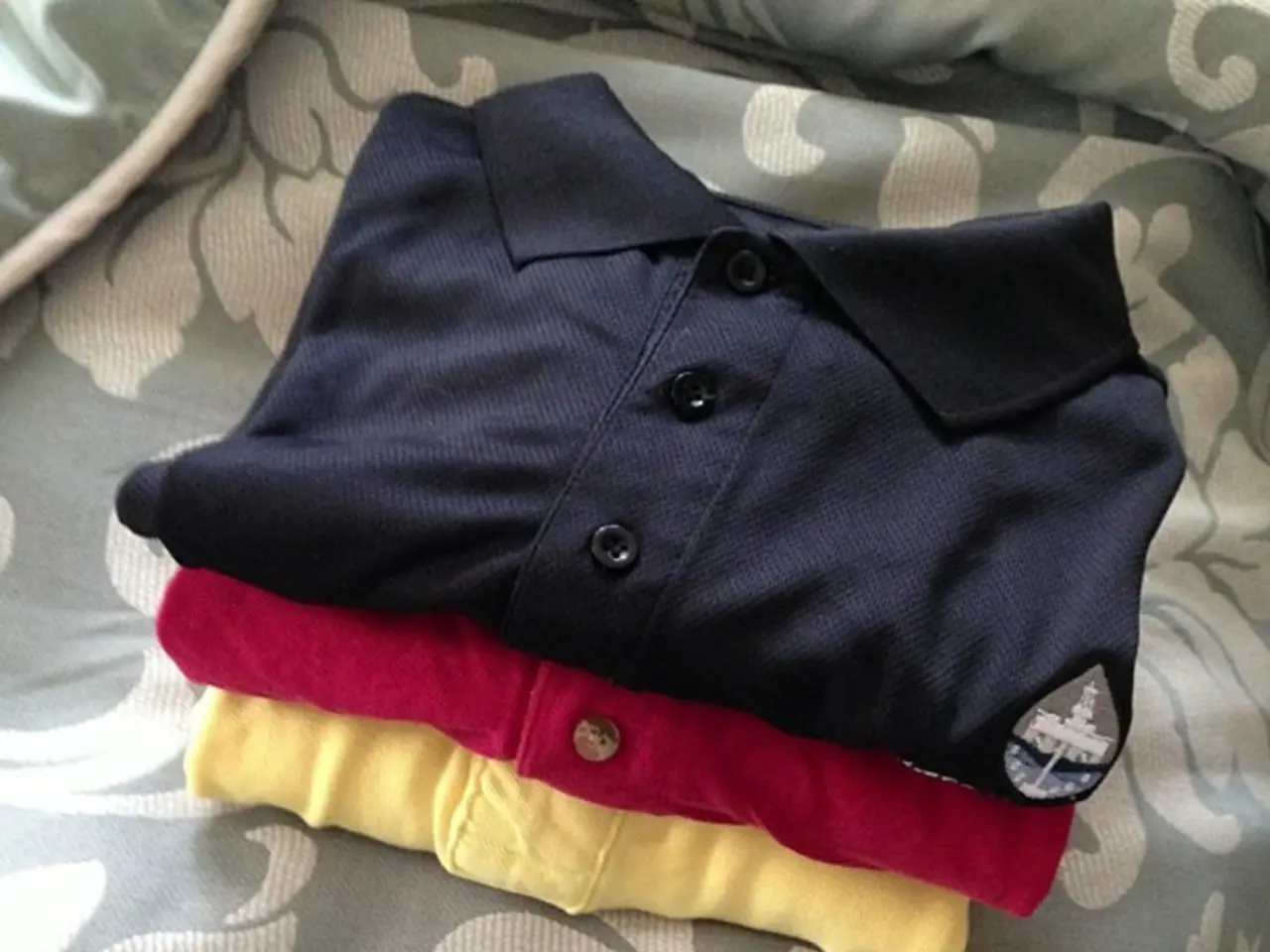Portugal's eco-friendly path in textile manufacturing offers a blueprint for the European Union's textile sector.
European Commission Pushes Forward with Sustainable Textile Vision Amid Energy Crisis
The European Commission has presented a comprehensive package for the European Green Deal, promoting the circular economy and sustainable production of textiles. The Commission's 2030 Vision for Textiles aims for all products on the EU market to be durable, repairable, and recyclable, made of recycled fibers, free of hazardous substances, and produced respecting social rights and the environment.
Amidst the ongoing energy crisis caused by the war in Ukraine, the Commission remains committed to its vision for a climate-neutral, circular textile industry. The textile and clothing industry is facing an unprecedented situation due to the rising energy and gas prices, with many companies considering shutting down production. However, the EU and industry players are pushing forward with innovations like biosourced dyes and responsible manufacturing models to offset these challenges.
One such example is JF Almeida, one of Portugal's best examples in the textile industry. The company uses recycled plastic bags for packaging yarn, has made document dematerialization efforts, and has an annual action plan of reducing paper consumption by 30%. JF Almeida also recycles and reuses 40% of the water that enters its dyeing plant, reducing water consumption by more than 6,5 Olympic swimming pools. The company has invested in more energy-efficient processes and greener energy sources, leading to a decrease of 2358 tonnes in CO emissions between 2016 and 2021 and almost 500,000 euros saved in energy costs.
Portugal's textile and clothing industry accounts for 18% of all employment in the manufacturing industries and 9% of the country's exports. The industry ranks 5th on the European market in terms of turnover, generating 7.8 billion euros. To foster the development of the Portuguese textile and clothing industry, visibility is being increased as a sustainable leader, promotion in third markets is being reinforced, and efforts are being made to increase export market shares and conquer new markets.
The Commission is making an active effort to be inclusive in the creation of a sustainable and digital textile ecosystem, with an online survey for industry companies. Workshops will be organized in the summer and autumn based on the results of this survey. The Commission is also planning to review the textiles labelling regulation, considering compulsory sustainability and circularity elements on the label.
Future plans for the sector include rolling out the EU Strategy for Sustainable and Circular Textiles, with clear regulations to reduce waste and emissions by 2030. The strategy aims to increase investments in circular business models and sustainable manufacturing technologies, strengthen extended producer responsibility and promote sustainable production, re-use, and repair principles. The Commission also plans to collaborate with industry and national governments to align policy and innovation on a circular and low-carbon textile value chain and to accelerate actions to make the textile industry more resilient to shocks like energy price volatility caused by geopolitical conflicts.
The Commission is creating an EU Digital Product Passport to provide comprehensive information on product composition along the value chain. This passport will help consumers make informed decisions about the sustainability of the products they purchase. The Commission's vision for the textile industry aligns with the broader EU Circular Economy Action Plan, which targets doubling the circular material use rate and reducing environmental impact across sectors, including textiles.
Mário Machado, ATP President, stated that the Portuguese industry's vision and strategies for 2030 align with the Commission's recommendations, with sustainability as a key development area. EURATEX, the European Apparel and Textile Confederation, emphasized the need for access to energy at reasonable prices for textile companies.
In conclusion, the European Commission remains committed to its 2030 vision for a climate-neutral, circular textile industry despite the energy cost challenges intensified by the Ukraine war. Ongoing projects and strategic collaborations focus on waste reduction, circular raw materials, and emissions cuts, intending to reach the ambitious sustainability goals set for 2030 and beyond. The Portuguese textile and clothing industry, with its sustainable leaders like JF Almeida, plays a crucial role in this transition towards a more sustainable and circular textile ecosystem.
- The European Commission's 2030 Vision for Textiles aims to make all products on the EU market sustainable, using recycled fibers, promoting circular economy, and reducing emissions.
- Amid the rising energy costs, the textile and clothing industry, including European players like JF Almeida, are adopting eco-friendly practices such as water recycling and energy-efficient processes to reduce emissions and save costs.
- Fashion-and-beauty businesses are also encouraged to adopt sustainable practices, as the Commission plans to review textile labelling regulations, considering compulsory sustainability and circularity elements on the label.
- The European Commission is collaborating with industry, national governments, and third markets to foster the growth of sustainable textile businesses, aligning innovation with a circular and low-carbon textile value chain for a more resilient industry.




